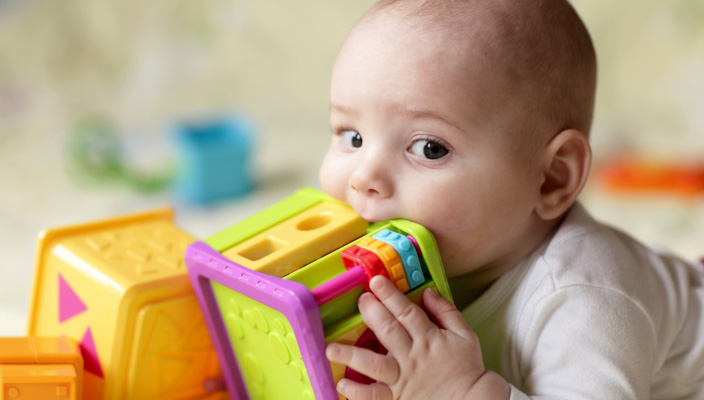When Uruguayan football star Luis Suarez was seen biting Italian defender Giorgio Chiellini during a FIFA World Cup match earlier in the week, there was understandable uproar.
Violence, especially when it is unexpected, is always shocking and biting in particular is viewed as a highly aggressive behaviour. Parents all across the globe will recognise the horror that the biting of one human by another can cause, as many children go through a phase of using their teeth where words would be better.
Infantile biting is recognised by psychologists as a developmental phase and many parents get concerned when their formerly relaxed baby turns into a seemingly angry ‘bitey’ toddler. There is lots of great advice out there to help you and your toddler through this phase:
___
Toddlers bite for many different reasons, but often they do so to express something they don’t have the language for yet. Trying to work out the underlying expression may help for example:
1. Sometimes, toddlers bite to express anger or excitement. Sometimes it’s because they are over-stimulated or over-tired.
2. Sometimes young children bite because they want to test the boundaries of the adults around them and get attention.
3. Infants may bite to relieve pressure or pain in their head especially if they are teething.
____
Once you have got to a possible underlying cause, consider these strategies:
1. Hard as it may be, try to keep calm and don’t bite back! There is absolutely no evidence to suggest that this is helpful.
2. Say clearly and firmly that biting hurts. If your child has bitten another child, make it clear to your child that their bite has cause that child to cry. Show concern for the child who had been bitten rather than the biter!
3. If your child seems to bite in response to highly stimulating environments, think carefully about where you are taking them for play dates and parties and so forth. Perhaps they find lots of music and people threatening and prefer quieter more intimate atmospheres.
4. Try to notice the behaviours and situations that lead up to a biting incident and make efforts to reassure your toddler with hugs and attention before things escalate. Early intervention will help.
5. Avoid play dates and parties when you know your toddler is already tired.
6. Crunchy snacks such carrots cooled in the fridge or teething rings can help when your child is biting to relieve pain so keep some in your bag when out and about.
7. Don’t forget, if you are worried about your child’s biting habits or they seem to be biting a lot past the age of about 3 and a half, talk to you doctor or health professional.

